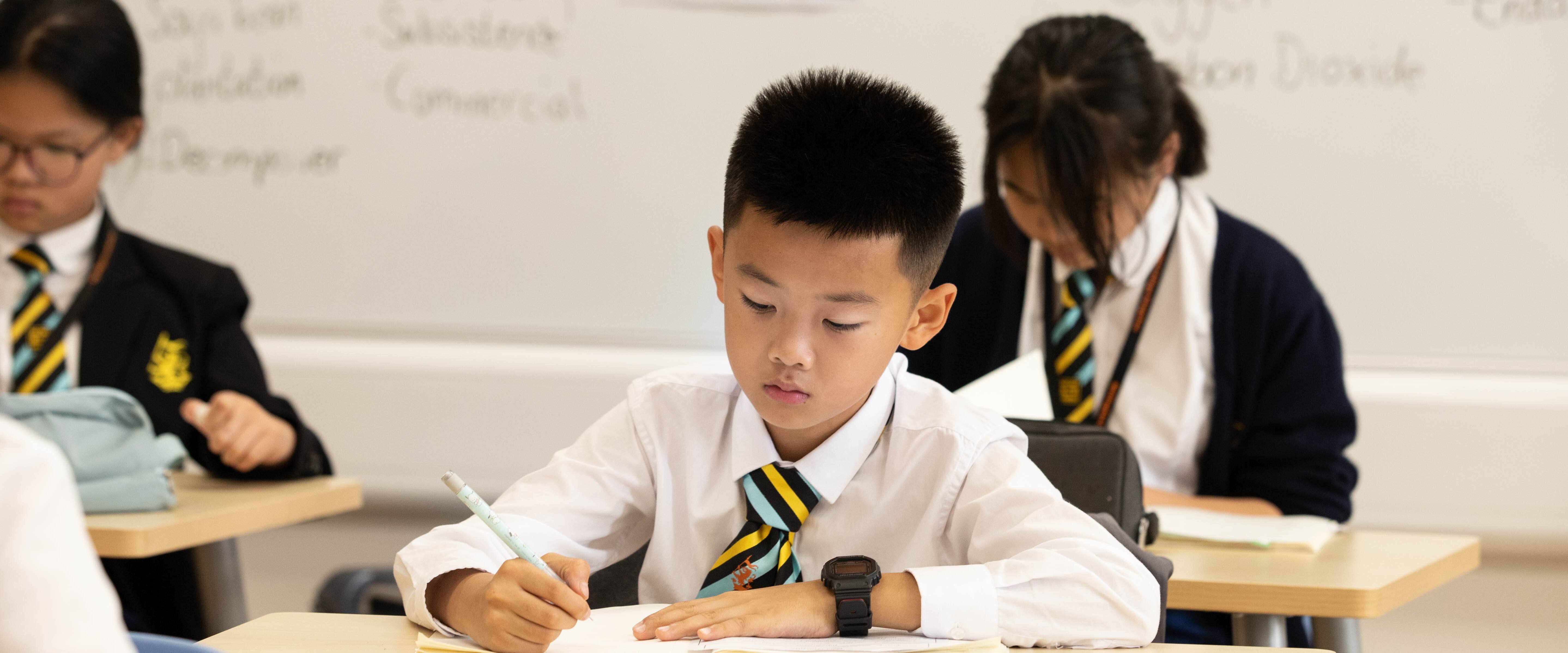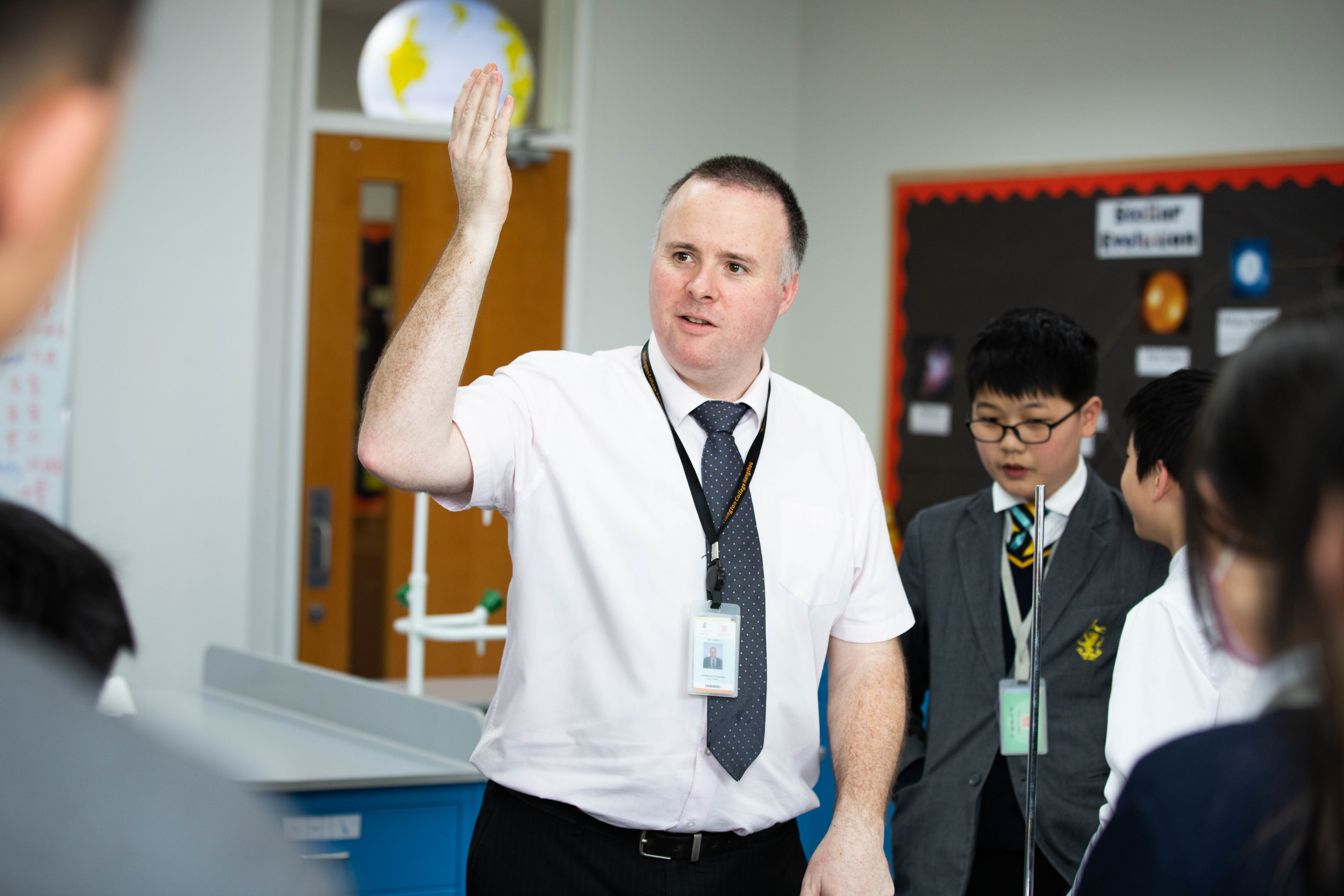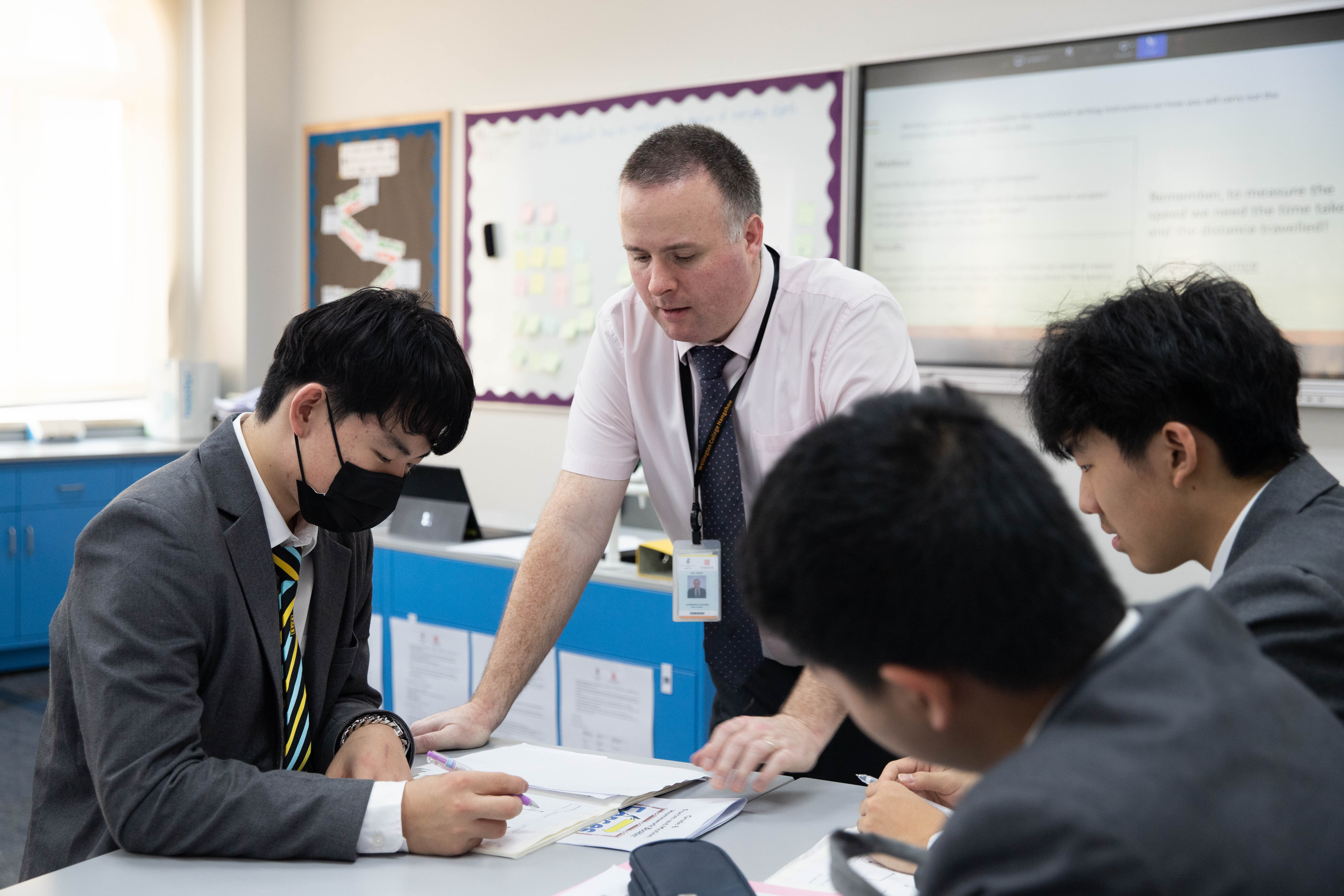

The study of science is fundamental in understanding the world around us and linking cause and effect. At Hiba Academy Hangzhou, we believe that a hands-on experimental approach to learning science is vital to inspire the next generation of scientists. Together with a rigorous academic understanding of the key concepts of biology, chemistry, and physics, this is what we are determined to ensure that pupils at our school excel at.
To support our pupils to gain the best qualifications that they can, we offer three different Edexcel IGCSE science courses, including triple science, double science and single science. Each of the various courses is tailored to individual pupil needs and the direction their future education will take. All three courses cover aspects of biology, chemistry and physics but are different in the depth of understanding needed to be successful.
01
The triple science course is most suited to students whose absolute passion is science and wishes to ensure that they have the most comprehensive scientific knowledge.
02
The double science is suitable for pupils who are interested in science and want to ensure that they have a more balanced curriculum.
Both of these options are great for pupils who will study science further in the future.
03
The single science is aimed at pupils who need a well-rounded knowledge of science to understand the world around them and become global citizens.

Once pupils have been prepared for their IGCSE, they will sit some exam papers depending on the three pathways they follow. The grading for all IGCSE papers in science is on the 1 to 9 scale, with a 9 being the top grade and regarded as higher than an A*.
Triple Science
Pupils sit six papers for triple science with a 2-hour paper and a 1 hour and 15 minute paper per subject. Due to the extra demand of these papers, pupils who take this route get a separate Biology, Chemistry and Physics IGCSE.
Double Science
For double science, the pupils have to sit three papers that are 2 hours long, which are again separated as biology, chemistry and physics. Again, like single science, the scores of these papers are averaged, with pupils receiving two combined IGCSEs.
Single Science
The single science means sitting three papers each of 60 minutes in biology, chemistry, and physics. The scores from these papers are then averaged to generate a single combined IGCSE grade.
To ensure that pupils are successful at IGCSE, our team of specialist science teachers draw on years of research and experience to craft learning opportunities that engage pupils in a range of activities. Typically, students will be asked to investigate scientific phenomena using the scientific method or develop new knowledge and understanding of the theories behind scientific ideas. To ensure that pupils are making progress, the team at Hiba have devised a series of assessments that test pupils' knowledge and skills. These assessments are delivered in the form of exam-style tests or longer written assignments based on the department's assessment rubric or grade boundaries. These assessments prepare students for the rigour of the IGCSE exams while enabling staff to identify pupils' areas of strength and development. As a team, we also encourage pupils to take ownership of their learning by identifying their development areas and completing extra practice or revision to ensure that they can master the topics we cover.
Using these methods, we hope that every pupil leaves Hiba with an understanding of science and a curiosity about the world around them that will enable them to become the best they can be.